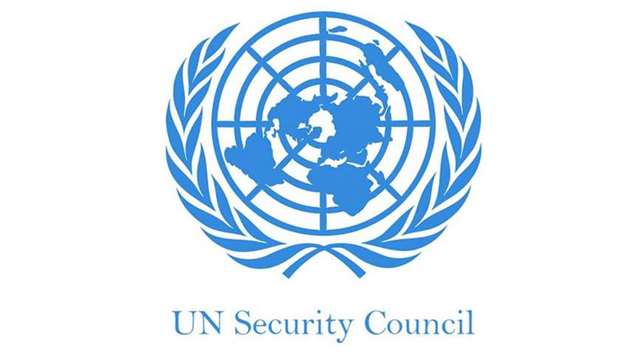By Dominic Brisbane
In my previous article, I ended by saying that St. Vincent and the Grenadines can change the world. I begin this piece with a quote from the late I-Kiribati poet and scholar, Teresia Teaiwa. Coincidentally, this titaness hailed from a small island state that, just like SVG, is comprised of 32 islands and cays and has a population of about 110,000 people. This is what she wrote:
“Shall we make ‘island’ a verb? As a noun, it’s so vulnerable to impinging forces. Let us turn the energy of the island inside out. Let us ‘island’ the world! Let us teach the inhabitants of Planet Earth how to behave as if we were living on islands! For what is Earth but an island in our own solar system? An island of precious ecosystems and finite resources. Finite resources. Limited space. . .. Once islanded humans are awakened from the stupor of continental fantasies. The islanded can choose to understand there is nothing but more islands to look forward to.” (Teaiwa, 2007)
This passage highlights the importance of small island perspectives. In today’s globalised environment, the shores of small island developing states (SIDS) are swept by many forces beyond our control — the most precarious of which are the hazards of climate change. Climate change is humanity’s biggest challenge for the 21st Century. For SIDS, climate change poses an existential threat. By existential threat, I mean that “sea level rise and extreme weather events threaten the livelihoods and possibly the long-term existence of whole island nations” as highlighted by a team of researchers who specialise in the study of climate change (Petzold and Magnan, 2019: 145). This is the harsh but certain reality that would stare most of our children and us in the face in years to come. I say most of us because many of our elders will not be around to experience the waves of destruction that climate change will inevitably bring. And this destruction has already started.
While some of us may not recognize it, we are currently living through the 6th mass extinction eventwith a recent United Nations (UN) report suggesting that “up to one million animal and plant species are on the verge of extinction“. This loss of biodiversity poses a significant threat to our food chain and would serve to worsen the daily-lived experience in small islands. And food security is not our only challenge. If we survive the more intense hurricanes, floods, droughts, and other hazards of climate change, we will still have to face the residual security risks to our health, economy, and communities. Yet, this is still only the beginning of our troubles. Some scientists predict that during this 21st Century, we will experience “synchronous failure” — where multiple systems (such as the food chain, the economy, global energy systems etc.) will all be disrupted at the same time (Homer-Dixon et al., 2015). By 2050, the International Organization for Migration (IOM) expects that there will be 200 million climate refugees — people that are forced to flee their homes as a result of climate change and its associated risks. Many of these climate refugees will come from small islands, just like ours.
Does this cause you to feel distressed, upset, or unnerved in any way? It should. Yet, we must still have hope. St. Vincent and the Grenadines’ election to the United Nations Security Council (UNSC) gives me hope. The perspective of small island states, increasingly important given our unique histories and trajectories, will be represented at the most important decision-making table in the world. While some may reject this idea and question the abilities and possibilities of our small island, I implore them to reflect on how much our people have endured throughout history while showing remarkable resilience. For those that disparage SVG’s position due to political partisanship, remember that Prime Minister Ralph Gonsalves and Opposition Leader Godwin Friday may not be around a few decades from now to endure what your children and grandchildren will be forced to endure.
Climate change is the 21st Century’s biggest security challenge. For small island states, now is the time to change the world — starting by projecting our voice and our interests at the UN Security Council. It is here that we can make a great contribution to humanity. It is here that we can help to awaken some of our fellow human beings and their political representatives from the “stupor of continental fantasies” — to borrow a phrase from Teaiwa. SVG can change the world. After all, our future existence and that of our families depend on it.
Dominic Brisbane is a Vincentian who studies globalisation and global governance.
The opinions presented in this content belong to the author and may not necessarily reflect the perspectives or editorial stance of iWitness News. Opinion pieces can be submitted to [email protected].







Why don’t you take off those rose-tinted spectacles of yours Dominic and get off that fluffy floating cloud that you so love to sit on, those high clouds that elegantly glides so high above us simple Vincentian folks.
Take a casual walk through Kingstown streets, from Port-House through our rat infested byways of the capital, while meandering your walk through Middle Street and Bay Street. Eventually passing your way via Randy’s storefront through to the Health inspectorate and the Milton Cato Hospital, making sure that you take with you your cotton filled nose mask in order to protect your health from the suffocating stench of the open drains that you will encounter.
After you have done so Dominic and have arrived at the sobering reality of our stinking helpless grinding poverty, return here and tell us why the issue of this so-called “Climate change” phenomena and a costly U.N seat should be of a more important issue to us Vincentians, than our crushing joblessness and the present-day increasing lack of food on our empty tables?